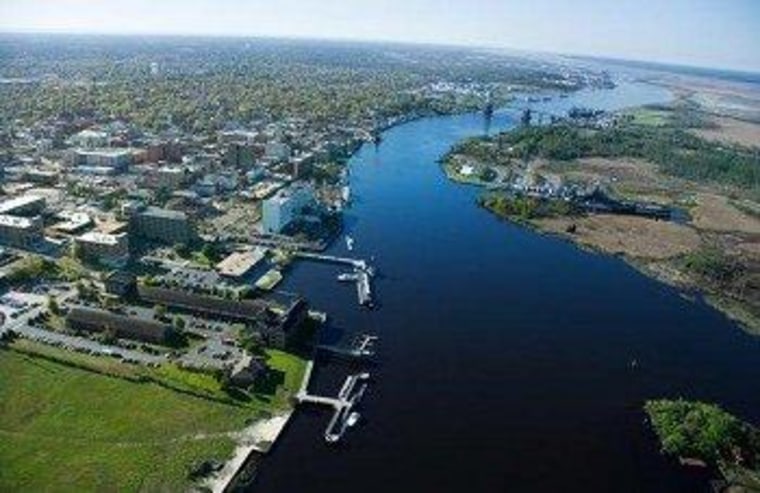There's just something about the North Carolina sea-levels story I like. Maybe it's because I've been influenced by Chris Mooney's great new book, "The Republican Brain," but this one policy fight seems to capture so much of what's wrong with conservatives' approach to policymaking and appreciation for evidence.
To briefly recap, GOP lawmakers in North Carolina have a new solution to rising sea levels, caused by global warming: scrap the scientific evidence pointing to rising sea levels.
A state-appointed science panel warned officials that sea levels will rise 39 inches over the next century and that North Carolina needs to prepare. Under a GOP plan, officials would be prohibited from relying on the scientific evidence, and would instead have to use a historical model to set expectations. North Carolina would prepare for only 8 inches of sea level increase, since that's what happened over the last century.
Yesterday, the GOP plan advanced.
Rejecting a science panel's warning that the North Carolina coast should prepare for an increasingly rapid rise in sea level later in this century, a Senate committee on Thursday endorsed far-reaching rules that would force planning and regulatory agencies to base sea-level forecasts only on the slower rates recorded in the past."If you're going to use science when you really can't validate it ... you're going to be implementing policy and rules and regulations that can have a very, very negative impact on the coastal economy of this state," said Sen. David Rouzer, a Benson Republican who championed the legislation.
Sure, the state-appointed science panel said the sea-level increases will accelerate, but to take that seriously will have a "very, very negative impact" on the coastal economy -- as if 39 inches of additional water wouldn't have a "very, very negative impact" on the coastal economy.
"It's already clear from the data that the rates of sea-level rise are accelerating," professor Rob Jackson, who heads the Duke University Center on Global Change, told the committee. "We know that, and we know why: because of increasing temperatures and thermal expansion of ocean water, and because of ice melting."
Jackson was ignored.
